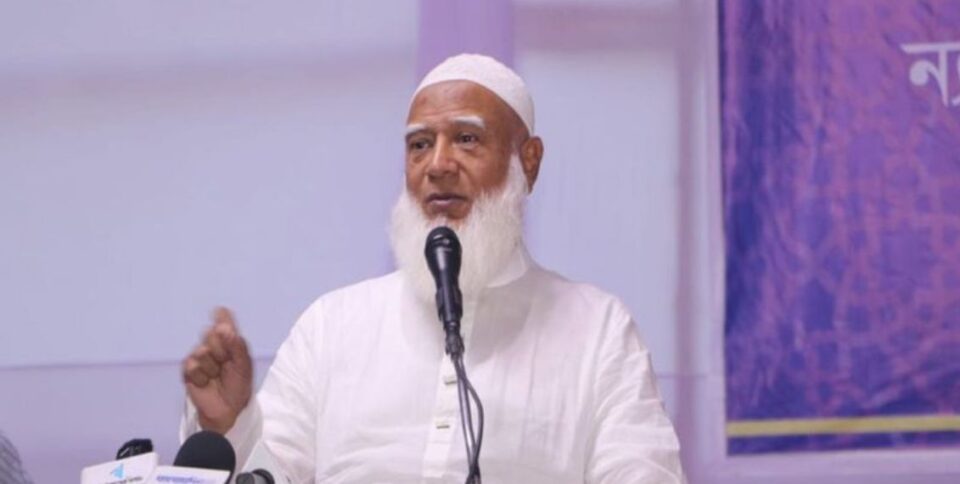DHAKA (Nov 4): Bangladesh Jamaat-e-Islami chief Shafiqur Rahman has issued an unconditional public apology for what he called the party’s “past mistakes,” a move seen by analysts as an attempt to rebrand ahead of the February 2025 national elections, The Diplomat reported.
Speaking to reporters in New York on October 22, Rahman said, “From 1947 to today, whoever has suffered because of us, we seek their forgiveness, unconditionally.”
The statement immediately sparked controversy at home, with critics calling it vague and insincere, since Rahman did not explicitly acknowledge the party’s collaboration with Pakistan’s military during the 1971 Liberation War — a period marked by atrocities, mass killings, and crimes against humanity.
“From 1947 to 2025, if on an unspecified day, an unspecified crime was committed, the apology was for that,” Rahman said in an apparent attempt to frame the statement as a general acknowledgment of wrongdoing.
Critics call it a political move
Human rights advocates and families of 1971 war victims have dismissed the apology as an electoral tactic aimed at rehabilitating Jamaat’s image after years of isolation under Sheikh Hasina’s government.
During the war, Jamaat-e-Islami leaders helped form militias such as Al-Badr, Al-Shams, and Razakar, which collaborated with the Pakistani Army in targeting freedom fighters, intellectuals, and civilians.
The party’s top leaders — including Ghulam Azam, Motiur Rahman Nizami, and ATM Azharul Islam — were convicted or executed by Bangladesh’s International Crimes Tribunal (ICT) during Hasina’s tenure (2009–2024). The High Court also revoked Jamaat’s registration, banning it from electoral politics.
“We’ve apologised before,” says Rahman
Rahman defended his remarks, saying the apology was not new. “We had offered our apology at least three times — Professor Ghulam Azam apologised, Maulana Motiur Rahman apologised, and I myself offered an apology,” he said.
He added that the party’s mistakes should be viewed as political, not moral failings:
“Out of 100 decisions, 99 might have been right, but one could be wrong. If that one wrong decision harmed the nation, what was wrong in seeking forgiveness for it?”
When asked why the statement didn’t focus solely on 1971, Rahman replied, “Had we made mistakes only in 1971? Not at other times? And those who told us to apologise, were they angels?”
Jamaat returns to political stage
After Sheikh Hasina’s ouster in August 2024, the ban on Jamaat-e-Islami was lifted by the interim government of Muhammad Yunus, allowing the party to resume political activities.
Since then, Jamaat has rejoined student politics, rebuilt its grassroots networks, and is forming alliances with other Islamic parties to contest the upcoming elections.
Political observers say Rahman’s apology is part of this broader effort to regain legitimacy and distance the party from its wartime legacy, though scepticism remains high among the public and victims’ families.

